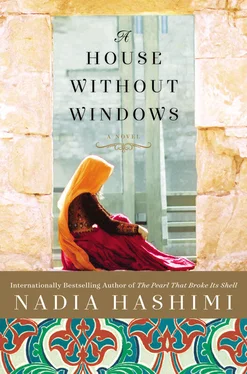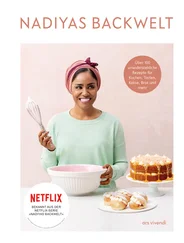Everyone knew about Zeba’s outburst. She had raged for nearly a half hour, her fingers digging into her scalp and tearing at her dress.
Yusuf had jumped to his feet when Zeba had created that scene. He would have been more embarrassed had he not seen the qazi and the prosecutor look just as bewildered by his client’s explosion.
Zeba could see a change in him. Yusuf’s voice was controlled. He chose his words carefully.
“What are you not telling me?”
Zeba brought her hand to her forehead and closed her eyes. She would scream her story for all to hear if she thought anything good would come of it.
“Khanum, with all due respect, you have to tell me what happened that day. Tell me what kind of man your husband was. Did he beat you? Did he try to kill you? Did he beat the children? Was he a drug addict?”
How hopeful you sound, thought Zeba.
“Don’t look at me like a child. Don’t tell me I’m a foreigner. I was born in this country too. I come from the same land, the same people. I know how things go. For anyone, anyone to have come forward and said anything in your defense is some kind of miracle. Talk to me so I can defend you or tell me there’s nothing to defend so I can explain that to your brother and walk away.”
Yusuf held his breath. The more time he spent around Zeba, the more bizarre her behavior, the more he believed that she was worth defending. And that, more than anything, was what made Zeba look on him as a child and a foreigner.
“My brother?” Zeba said absently.
“Yes, your brother, Rafi. He told me you were wronged. From what I can see, it’s hard to understand why he would say that. I’ve heard the description of the scene, and you offer no other explanation for being found next to your husband’s body. Maybe Rafi doesn’t want to see anything happen to his youngest sister, but it looks like he’s going to be very disappointed very soon.”
Rafi was five years older than her. When their father had wandered off, Rafi became a father figure to his younger sister. Their mother came to rely on him for everything from putting food in their bellies to representing their family at funerals. Rafi went along with his grandfather Safatullah’s plan for Zeba to marry Kamal. He saw no real reason to object.
“Was my mother there too?”
“Who?”
“My mother. Did she come with Rafi?”
“No, why?”
Zeba said nothing. She closed her eyes and pictured her mother’s soft face, her incredible golden-green eyes, and the way the corners of her mouth lifted just slightly when she spoke. Zeba felt a sudden yearning to be at her mother’s side, to fall at her feet and press her face against her mother’s hands.
“Who came?” Zeba asked. “You said someone came from my village. Who was it?”
“I don’t know. The qazi didn’t give me a name. He didn’t tell me if there was any connection to you either. It could be a neighbor, a friend, a family member. Maybe you have an idea who it might have been.”
Zeba didn’t.
“All the judge would tell me was that the person said you were innocent. That your husband met an unfortunate fate and that your children needed their mother returned to them.”
Zeba winced at the mention of her children.
“Have you heard anything about my children?”
Yusuf shrugged and shook his head. At least she was talking.
“Not much, unfortunately. I know they are with relatives. I wish I could tell you more.”
Kamal’s sister. The family was undoubtedly plotting her death and turning her children against her. The prison didn’t allow any children over seven years of age. Regardless, Kamal’s family would have claimed the children, and she, even as mother, couldn’t contest their claim.
“I want to see them.”
“I don’t know if that’s possible. I have no way of reaching out to them.”
Zeba knew just how impossible it was. Every day she became more certain it was useless to argue for her innocence. It would be better to relent and accept whatever punishment the qazi issued. Without her children, there was nothing left for her. Her husband’s family would surely kill her even if she were freed.
“Why are you here? Do you really think there’s a way to defend me?” Zeba was oddly calm as she posed the question to Yusuf.
“I’m here because the answer to that question is yes. We’ve got everything stacked against us to be very honest. But I still think there’s a chance if you’ll just talk to me about the day your husband died.”
Zeba stared at the table; she shook her head.
The day your husband died.
Zeba noticed, as Yusuf hoped she would, that he had not assumed her guilt.
“You come here with your briefcase, pieces of paper. . forms filled out. You have a notebook you can’t seem to live without, eyeglasses that are from another country. Maybe you’ve seen things in your young life, something that makes you think all that can do something. Makes you think there’s something more than the qazi, more than the Qur’an, more than the people around us. There is nothing more. There is nothing in your bag that can change what happened. The village saw my husband with a hatchet to his head. They saw his blood on my hands, sir.”
Yusuf stared at Zeba. Her shoulders had straightened. She was sitting upright on the edge of her chair. Her chin trembled slightly though her voice was steeled.
Yusuf felt his designer-brand titanium frames pinch the bridge of his nose. He resisted the urge to take them off and rub away their imprint. He also kept his eyes off his notepad. For now, he would just listen.
“I lost my children the day I was taken away, the day my husband. . They are with his family now. They will be fed and clothed and told of their mother’s sins. Am I to tear them apart with my claims? Curious eyes are on them now. They are orphans. Orphans . Am I to turn them against the only people looking after them now? Am I to make my children targets just because I’m desperate for them? They deserve better from their mother. The only thing I can do for them now is to let them go. My son is strong and wise. God will lead him.”
Zeba slumped back into her chair, exhausted. She’d spent moonlit hours twisting and turning the situation around in her mind, exploring every angle, every potential end to the tragic story of Zeba and Kamal and their children. Zeba prayed, not with the usual ritual of prostrations and cupped hands, but with a desperate stillness.
Oh merciful Allah — their fates are in your hands. My fate is in your hands. Everything is in your hands, dear God, isn’t it? But then. . are your hands not bloody, oh all-knowing Allah?
Zeba shook her head. Was she stupid? Had she learned nothing from her years as Gulnaz’s daughter? As the granddaughter of the pious murshid ?
Yusuf watched her face. He saw her mind, saw her for the first time not as a client or a defendant. He’d been exasperated by her lack of fight, baffled by her submission, as if she was content to live her life in this prison or even be executed for the crime she probably did commit. But he saw now that she was fighting, probably harder than any client he’d ever had. Yusuf saw the flame in her eye. His mind churned.
“You’re not going to help me defend you.”
Zeba’s breathing was steady, resolute.
If Yusuf was going to defend this woman, he was going to have to do it on his own.
“I did not ask you here. You can tell Rafi that I did not cooperate. He can save his money.”
Yusuf remembered his last conversation with Rafi. He didn’t have much money and knew that his sister’s case was dismal. Yusuf had reassured him. The legal aid organization would take on her defense. There was still hope.
Читать дальше











